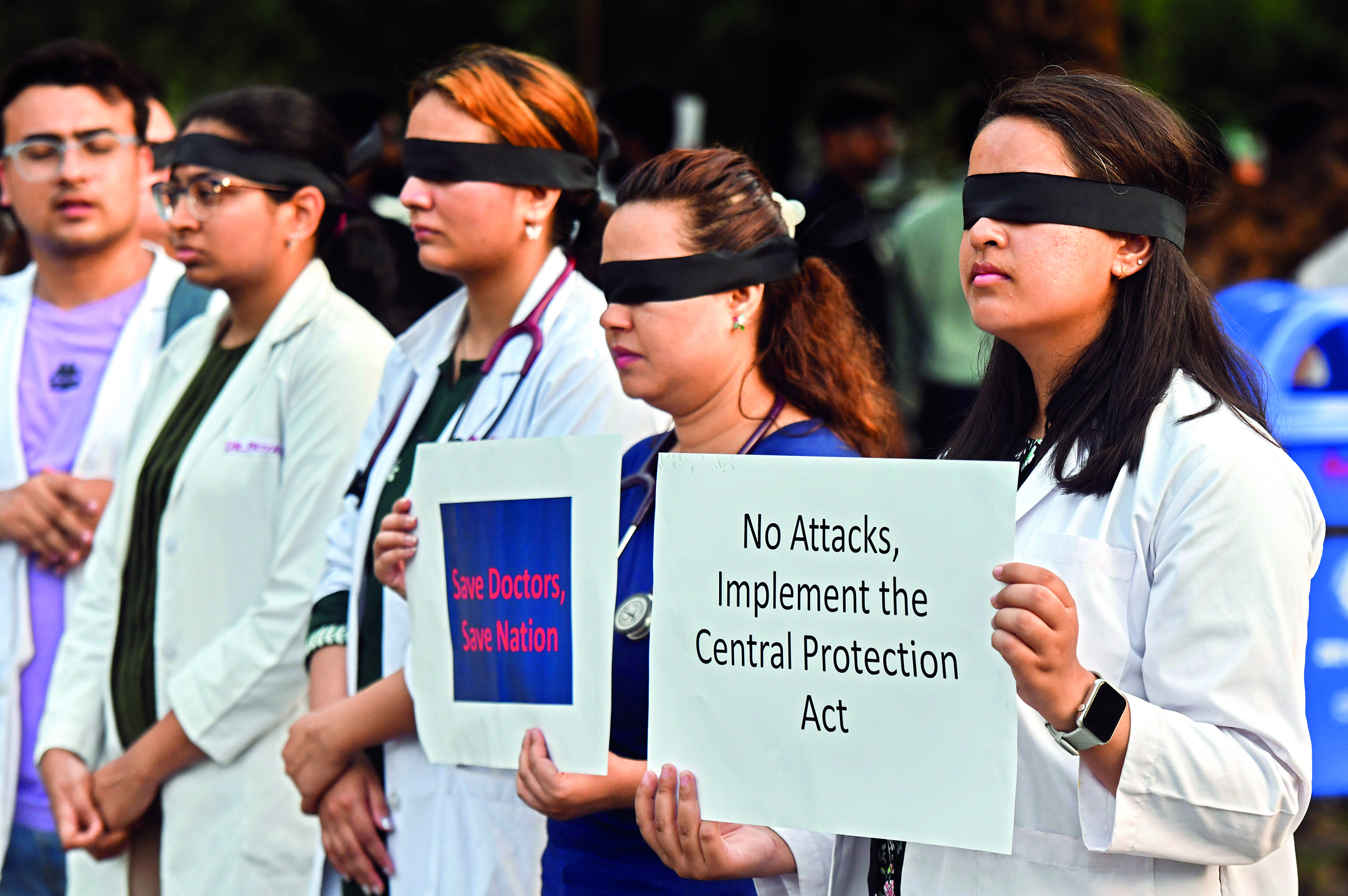Failing the daughters
As the rape and murder of a postgraduate resident doctor in Kolkata takes insurmountable toll on the minds of kins and general masses, the medical fraternity is forced to take the streets for a twofold objective—ensuring justice for the victim’s family, and facilitating safety at workplaces as a basic human right

Last week, a horrifying incident in the City of Joy sent shockwaves across the medical community in India. A postgraduate resident doctor at RG Kar hospital, while on a gruelling 36-hour duty, was sexually assaulted, raped, and brutally murdered on campus. The tragedy highlights glaring lapses in the safety measures, but even more disturbingly, it underscores a deeper, systemic failure. In many government hospitals in India, even the basic right to a safe space to rest during long shifts is not guaranteed. The uproar is now centred on the broader issues of women’s safety, doctors’ safety, victim-blaming, and a justice system that often seems to stretch into eternity.
Victim-blaming
Victim-blaming, where the victim of a crime is held responsible for what happened to them, reared its ugly head once again. Initial responses from authorities questioned why a young woman was in a seminar room late at night, implying she had somehow invited trouble. The reality, however, is stark: a severe lack of infrastructure forces doctors to find whatever space they can to rest, often in unsafe conditions. Clothing and behaviour are often scapegoated, but this tragedy painfully illustrates that safety is about much more than that. A 2018 study published in Psychology of Women Quarterly found that 28 per cent of respondents believed a rape victim’s behaviour could be a factor in the attack. Similarly, a 2022 study from the University of Michigan found that survivors who fear being blamed are less likely to seek help or report the crime.
The parents’ plight
For the parents of the young doctor, the pain is immeasurable. Losing a child in such a traumatic way can lead to acute and post-traumatic stress disorder, with emotions ranging from shock and numbness to anger, resentment, and depression. Acceptance, if it ever comes, can take a lifetime. Compounding this grief is the frustrating reality that, in our nation, justice is often delayed indefinitely, reopening old wounds repeatedly. For these parents, and many others, the legal outcome is not just about justice—it’s about finding some semblance of emotional closure.
A nation failing its women
Women’s safety remains a pressing issue in India. A recent survey revealed that approximately 90 per cent of college women in New Delhi have experienced some form of sexual harassment. Yet, it’s estimated that only about 1 in 10,000 cases of eve-teasing are reported to the police. Rape continues to be the fourth most common crime against women in the country. The statistics are stark, and the reality is even harsher.
What can we do to prevent these acts?
At home:
- Promote respectful behaviour for all.
- Teach boys about consent.
- Empower girls to say no.
- Be an ally—never shame victims.
- Parents should model respectful behaviour.
- Emphasise personal safety.
- Support women’s empowerment.
In society:
- Advocate for comprehensive sex education.
- Promote gender equality.
- Ensure accessible resources for survivors.
- Foster community support.
- Improve public spaces for safety.
- Encourage bystander intervention.
- Support women’s empowerment.
At the government level:
- Enact and enforce stronger laws.
- Implement harsher punishments for sexual crimes.
- Expedite justice in sexual harassment cases.
- Provide robust support services for victims.
- Invest in data collection and research.
- Support women’s empowerment.
A call to action
Doctors across the nation are temporarily setting aside their pens—not to distress their patients but to stand up for basic safety rights. The medical fraternity and the entire nation are united in their call for justice for women. They demand not only justice for the murdered doctor but also basic human rights in their workplaces. Yet, the uproar also concerns the mishandling of this case. What are the stakeholders doing to address these systemic failures?
Send your questions to [email protected]



